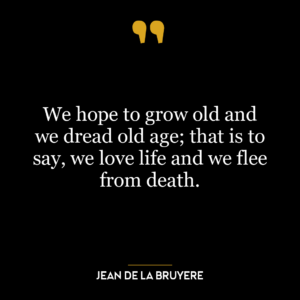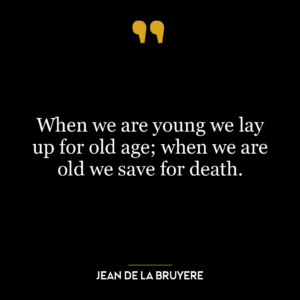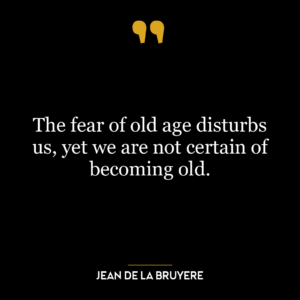This quote, “Life’s tragedy is that we get old too soon and wise too late,” encapsulates a profound truth about human life and the nature of wisdom. It suggests an inherent paradox in the human experience – our physical bodies age faster than our capacity to gain wisdom.
The quote implies two distinct timelines: one of the body and one of the mind. The physical body ages in a linear and predictable way, but the acquisition of wisdom is a non-linear, unpredictable process that often comes from life experiences, introspection, and learning from mistakes. By the time we’ve accumulated enough experiences to truly gain wisdom, our bodies have often aged beyond the point where we can fully utilize this wisdom.
This quote also underscores a certain melancholy about the human condition. It suggests a sense of regret or missed opportunities, as wisdom often arrives too late for us to make the most of it. It’s a poignant reminder that wisdom is often born out of mistakes and failures, and by the time we’ve learned our lessons, we may not have as much time left to apply them.
In the context of today’s fast-paced world, this quote is even more relevant. In a time where information is at our fingertips, there can be a false sense of wisdom or understanding. True wisdom, however, comes from lived experiences, making mistakes, learning, and growing, which takes time.
In terms of personal development, this quote can be a prompt to seek wisdom earlier and to value the process of gaining it. It encourages us to learn from our experiences and those of others, to make the most of our youth, and not to fear making mistakes, as they are stepping stones on the path to wisdom. It also emphasizes the importance of living in the present and using our acquired wisdom now, rather than waiting for a ‘perfect’ future moment. It reminds us that wisdom is not just about learning but about applying what we’ve learned in our life.


















